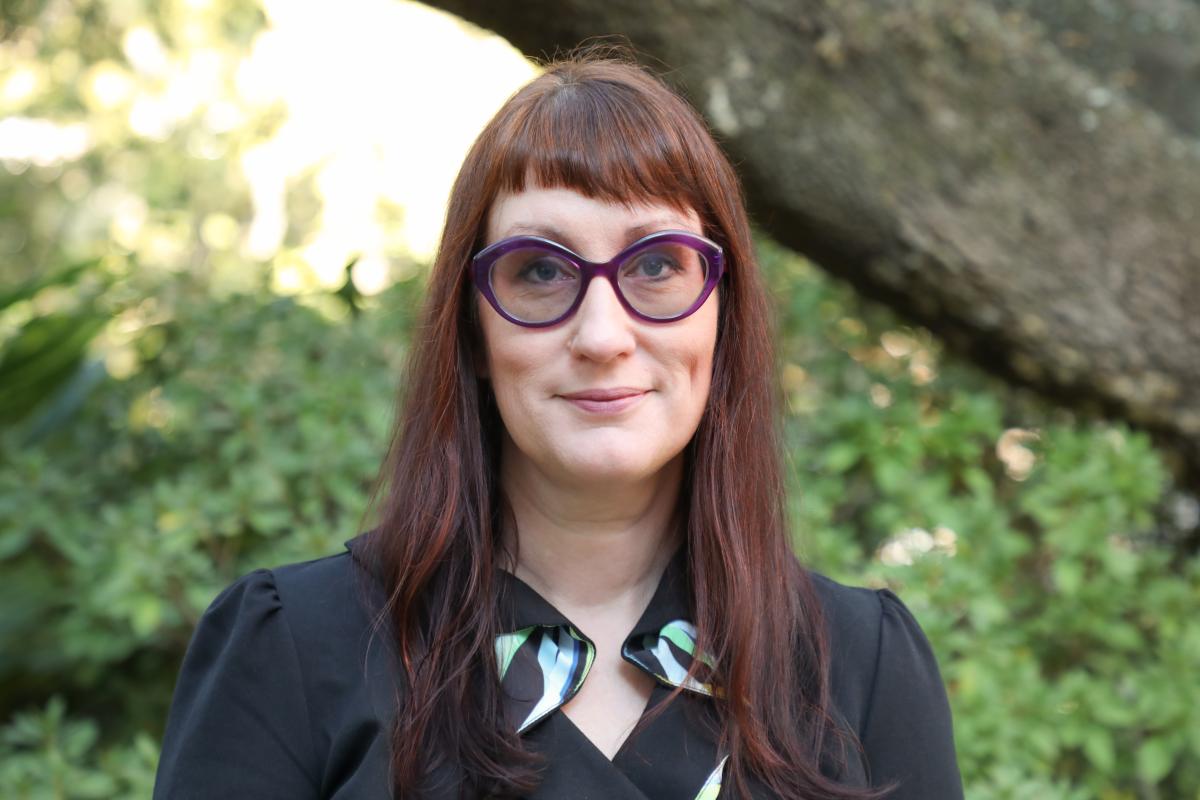FSU historian earns prestigious international fellowship to investigate violence against women during France’s Age of Revolution

A Florida State University historian is the recipient of a distinguished international fellowship that will support her research examining violence against women in 18th-century France.
Cathy McClive, the Department of History’s Ben Weider Professor in French Revolutionary Studies, earned a 2023-2024 French Institutes of Advanced Studies 10-month fellowship at the Collegium de Lyon, in France, to write her third book, “The Disappearance of Claudine Rouge: Rape, Murder, and Erasure in Eighteenth-Century France.”
“Earning this fellowship is incredibly gratifying,” McClive said. “FIAS applications go through two rounds of rigorous international peer-review, so the fellowship shows that top scholars in my field support my project.”
FIAS fellowships are funded by the European Union Horizon 2020 research and innovation program and support research at seven Institutes of Advanced Studies in France — Paris, Nantes, Loire Valley, Lyon, Marseilles, Montpellier and Rennes. McClive’s fellowship is through the Collegium de Lyon.
McClive’s research broadly investigates the social and cultural history of medicine, embodiment, gender, and sexualities in old regime and revolutionary France. For this fellowship, McClive will produce a microhistory of Claudine Rouge, a 17-year-old silk-worker’s daughter who disappeared June 25,1767 from her parents’ home in Lyon. Rouge was raped and murdered before being found in a river five days after her disappearance. The “Claudine Rouge Affair,” as it is better known, became the catalyst for a decades-long push for advancing forensic science in France.
“My in-progress book re-centers Claudine in the story of her own disappearance, the violence done to her, and the trauma her family and community suffered as an example of how we might restore humanity to subjects who are often objectified, victimized, and silenced by the very archives that tell us of their existence,” McClive said.
Due to the nature of the crime, McClive said she will also investigate the cultural implications of Rouge’s murderer likely being a woman during a period in Europe when women were acutely depending on the men in their lives for both protection and status in society. Throughout history most female murder victims have been killed by men, especially when sexual violence is involved, a pattern that research by the World Health Organization reveals remains true in the present.
McClive argues that fact has caused scholars to overlook the extent and nature of female violence, missing opportunities to understand such instances and draw substantive conclusions about the multiple ways in which patriarchal oppression manifests in gender-based violence.
“Scholars situate femicide, or the murder of women because they are women, on a spectrum of gender-based violence and murder,” McClive said. “I expand that continuum, including gender-based violence that some 18th-century women enacted on other women as a result of the structural vulnerabilities and sexual stereotypes they endured as women in a patriarchal society.”
The upcoming fellowship will be McClive’s second in France — she discovered the trial materials that formed the basis for her current book while holding a junior European Union Institutes of Advanced Studies fellowship through the Collegium de Lyon in 2011-2012, conducting research for her first book.
According to Jennifer Koslow, chair of the Department of History, McClive’s earning of the FIAS fellowship cements the department’s and FSU’s position among international institutions specializing in the study of the Age of Revolution in France.
“Dr. McClive’s presence is critical for sustaining FSU’s unique strength in studying the Age of Revolution, as well as the history of medicine in France in the early modern period,” Koslow said. “She also brings a nuanced perspective to reading and analyzing sources from the past.”
Before coming to FSU’s Department of History in 2017, McClive was an associate professor of early modern European history at Durham University, U.K. She earned a doctorate in 2004 from the University of Warwick, U.K., and conducted her postdoctoral studies at the École Pratique des Hautes Études, in Paris, France.
“I love the challenge of trying to understand more about lived experiences in the past and the sense of discovery it provides,” McClive said. “Fitting the pieces together and applying new lenses or questions to various sources is incredibly rewarding.
Learn more about the Department of History at history.fsu.edu.
